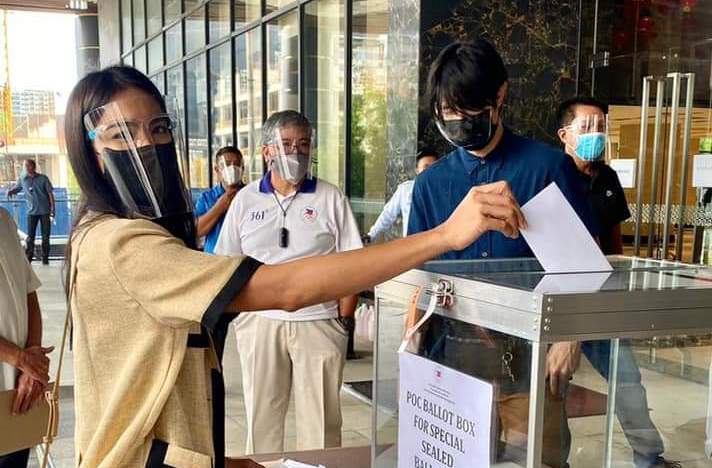Soriano: Pro league vital to PH volleyball growth

FILE – Charo Soriano during the elections of officers for the new volleyball sports association. CONTRIBUTED PHOTO
MANILA, Philippines — Volleyball has always been an integral part of Philippine sports but it was only in late 2020 that women players were recognized as professionals when the Premier Volleyball League got its pay-for-play status from the government.
The PVL’s pro status provided an avenue for the players to further their sporting careers and former athlete Charo Soriano can attest to that.
Soriano was a college star with Ateneo in the UAAP from 2003 to 2008 but she had reservations in continuing her athletic career after graduation since club leagues then only gave allowances and not guaranteed salaries.
“Turning professional I think is one of the more vital things in the growth of a sporting nation and to have PVL as somebody as a league becoming professional is a big step because this brings more security to the players,” said Soriano in a Zoom interview with Inquirer Saturday.
“This brings more stability to the careers they’ve chosen. A lot of times, and I’ve also experienced this when I was younger that I didn’t want to play volleyball after my collegiate career because, traditionally, it’s very vague in a sense because there’s no path for me to choose from. But with the PVL turning pro it’s actually becoming more sustainable.”
Soriano, who’s now a board member of the Philippine National Volleyball Federation, did have a lull in her playing career and only returned to active competition in 2013, five years after she left Ateneo.
She suited up for Smart-Maynilad, PLDT, and BaliPure in the PVL before becoming Perlas’ team manager in 2017.
The volleyball official was also instrumental in the development of beach volleyball in the country and actually played in the 2015 Philippine Superliga with Petron and also organized the Beach Volleyball Republic in the same year.
Soriano added that since there was no professional league for volleyball, student-athletes then had to find a day job after graduation and could only play on a part-time basis.
“Since there’s no pathway before, it’s hard for a player to say ‘I give up everything, I give up earning revenues and I give up also having a job just so I can play’ that’s the most ideal way of living and of playing a sport but that’s not for everybody,” said Soriano. “Of course we have to be practical also. We have friends, brothers, sisters, friends, that we want to support.”
“If the sport can’t bring us that, that was the ‘before’ landscape, we can’t choose it. However now it’s changing, we’ve been seeing it in the past couple of years, there were changes in terms of allowances the benefits the player can receive but as a player you want that sense of security, that sense of stability for a tenure, for a tenure, for a career path.”